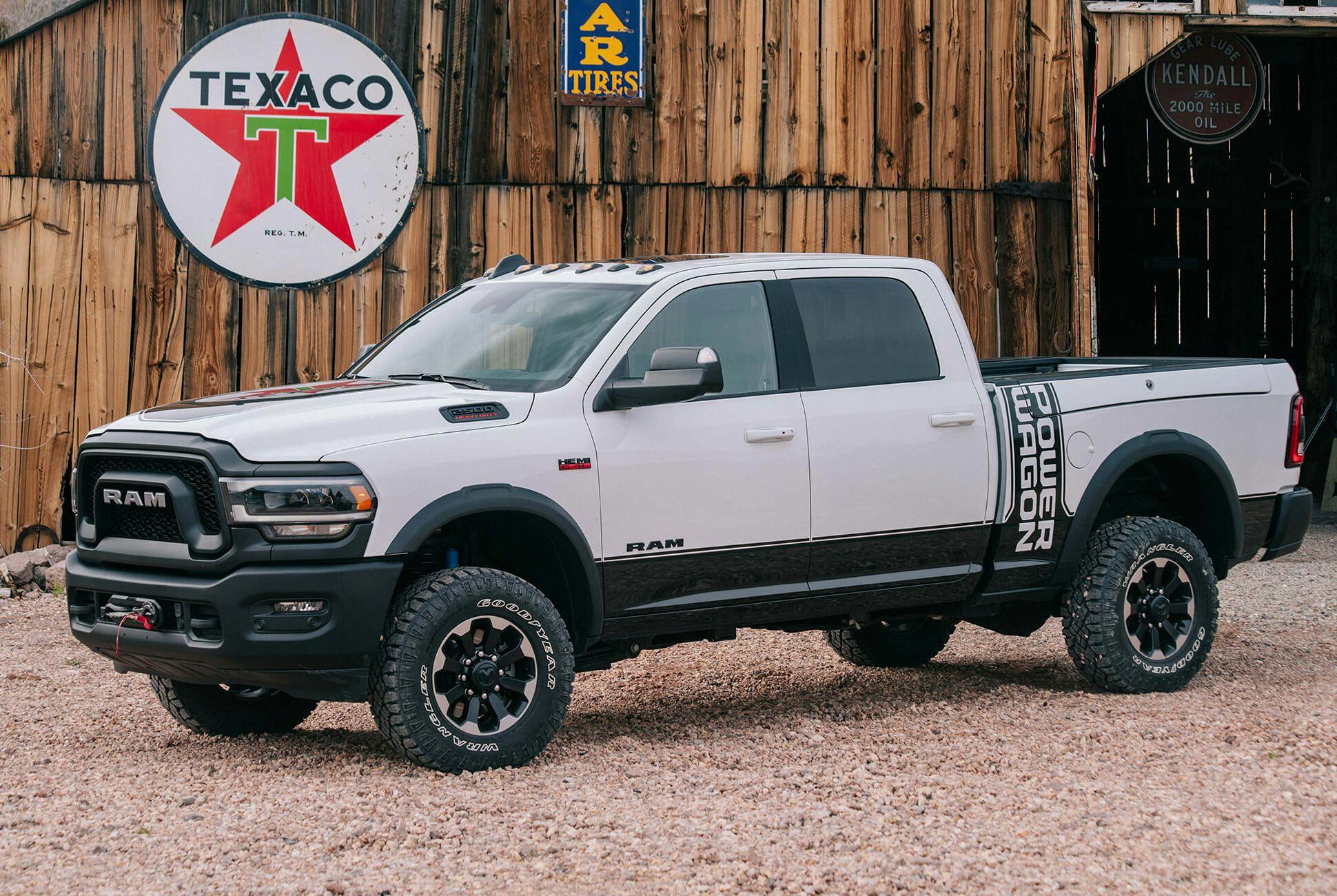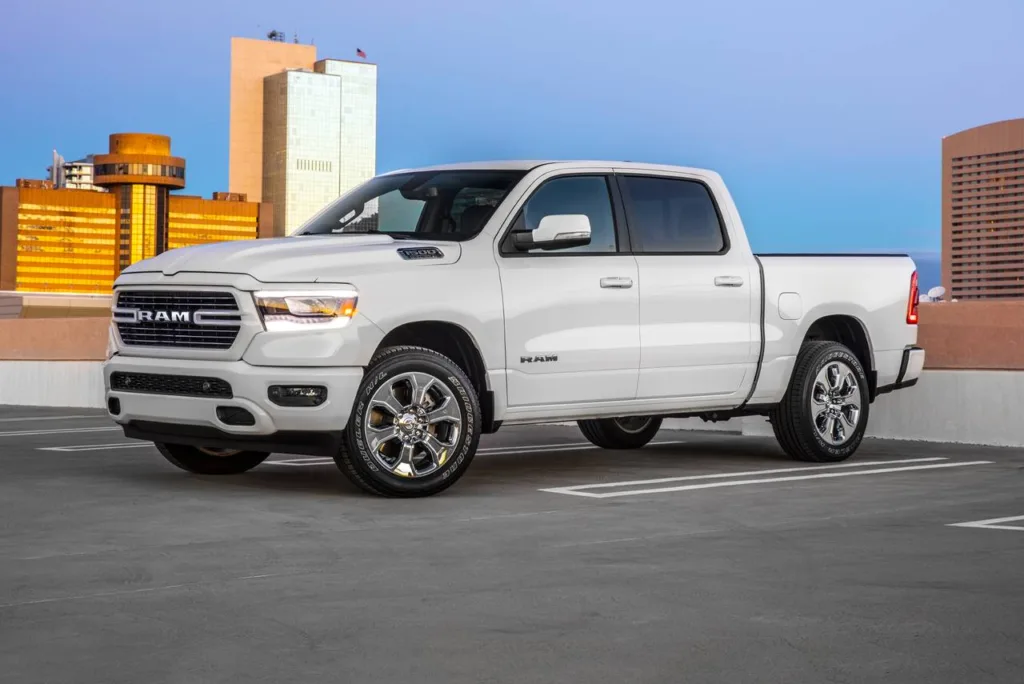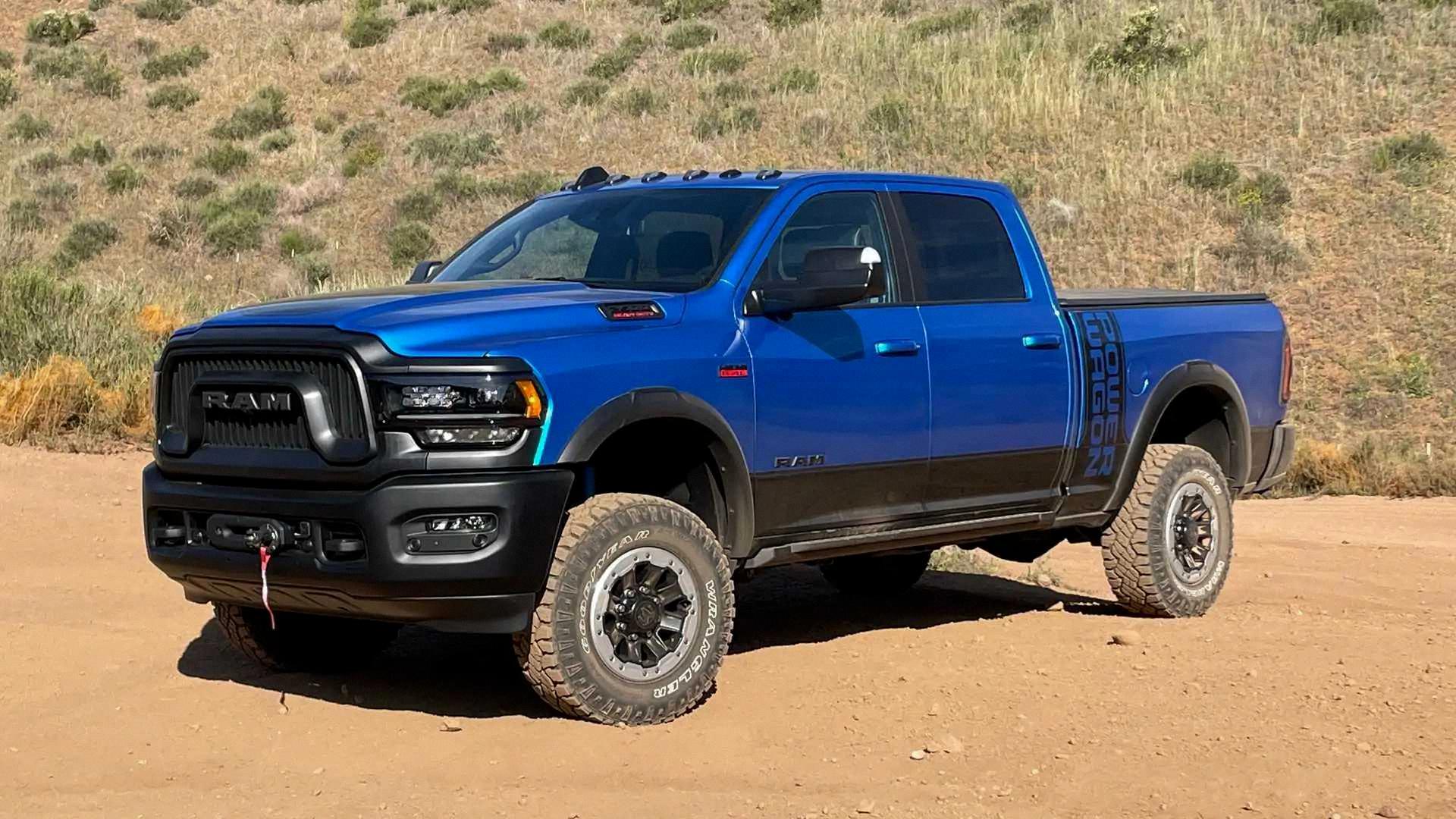The Dodge Ram 1500 is a popular and powerful pickup truck that is known for its impressive performance capabilities. Among the many factors that contribute to its power is the type of fuel that it requires. In this blog post, we’ll take a closer look at the fuel requirements for the 2021 Dodge Ram 1500.
First, it’s important to understand that the type of fuel that your Ram 1500 needs will depend on the engine that it has. The 2021 Ram 1500 comes with three different engine options: the 3.6-liter V6, the 5.7-liter V8 HEMI, and the 3.0-liter EcoDiesel V6. Each of these engines has different fuel requirements.
If you have the 3.6-liter V6 engine, you can use regular unleaded gasoline with an octane rating of 87. This is the most common type of gasoline that you’ll find at most gas stations, and it is also the least expensive. While you can use higher octane gasoline, it won’t provide any significant benefits in terms of performance or efficiency.
If you have the 5.7-liter V8 HEMI engine, you’ll need to use mid-grade gasoline with an octane rating of 89. This type of gasoline is slightly more expensive than regular unleaded, but it prvides the higher octane rating that the HEMI engine requires for optimal performance. Using regular unleaded gasoline in a HEMI engine can cause engine knocking and reduced performance.
Finally, if you have the 3.0-liter EcoDiesel V6 engine, you’ll need to use diesel fuel. This is a different type of fuel than gasoline, and it is typically more expensive. However, diesel engines are known for their superior fuel efficiency and towing capabilities, making them a popular choice for many truck owners.
It’s important to note that using the wrong type of fuel in your Ram 1500 can cause serious engine problems, reduce performance, and even void your warranty. Always refer to your owner’s manual for specific fuel requirements, and be sure to choose a reputable gas station that provides high-quality gasoline or diesel fuel.
The type of fuel that your 2021 Dodge Ram 1500 requires will depend on the engine that it has. If you have the V6 engine, you can use regular unleaded gasoline with an octane rating of 87. If you have the HEMI engine, you’ll need to use mid-grade gasoline with an octane rating of 89. And if you have the EcoDiesel engine, you’ll need to use diesel fuel. By using the correct type of fuel, you can ensure optimal performance and longevity for your Ram 1500.
Does the Ram 5.7 Hemi Require Premium Gas?
The Ram 5.7 Hemi engine does not require premium gasoline. However, the manufacturer recommends using mid-grade gasoline for optimal performance. This means that while regular gasoline (87 octane) is perfectly acceptable, using mid-grade gasoline (89 octane) may provide better fuel efficiency and performance. It is always best to consult your owner’s manual for the recommended fuel type and octane rating for your specific vehicle. Using a higher octane fuel than necessary will not necessarily improve performance or fuel efficiency, and can result in unnecessary expenses.

Source: gearpatrol.com
What Type of Gas Does a 5.7 Hemi Require?
The 5.7-liter HEMI V8 engine is designed to use 89 octane gasoline. This is the recommended fuel for optimal performance and efficiency. While it is possible to use a lower octane rating, such as 87, it may result in decreased performance and fuel economy. On the other hand, using a higher octane rating, such as 91 or 93, is not necessary and may not provide any additional benefits. It is important to always follow the manufacturer’s recommendations for fuel type to ensure the best performance and longevity of your vehicle.
Using Regular Gas in a Ram 1500
Yes, you can put regular gas in your Ram 1500. Ram recommends an 89 octane for the V8 engine, which is a mid-grade gas, but the V8 engine will also run on regular gas without any issues. For the 3.6L (219.9 ci) V6 engine, Ram recommends regular gas. However, it is important to note that using a lower octane gas may affect the performance of your vehicle, as it may result in reduced power and fuel efficiency. Additionally, using a higher octane gas than recommended by the manufacturer will not necessarily improve the performance of your vehicle. Therefore, it is aways advisable to follow the manufacturer’s recommendations and use the appropriate grade of gas for your Ram 1500 engine.
Mixing 87 and 89 Gasoline
Yes, you can mix 87 and 89 gas, but it is not recommended. That’s because the two fuels have different octane ratings, which is a measure of a fuel’s ability to resist “knocking” or “pinging” during combustion. When you mix 87 and 89 gas, the engine ties to adjust to the lower octane rating of 87, which can potentially cause damage to the engine. In addition, mixing different grades of gasoline can affect the engine’s performance, fuel efficiency, and emissions. Therefore, it is best to stick to the recommended grade of gasoline for your vehicle, as specified by the manufacturer, to ensure optimal performance and avoid any potential damage to your engine.
Do Ram Trucks Require Premium Gas?
Ram trucks come with different engine options, and the type of fuel they require can vary depending on the engine. For the Ram 1500, the manufacturer recommends using 91 octane premium gas, but it is not required. Owners can use regular gas without damaging the engine, but it may result in slightly reduced performance and fuel efficiency.
On the other hand, for the Ram 2500, 3500, and larger pickup trucks, 91 octane premium gas is required. Using regular gas in thse trucks can cause engine damage, reduced performance, and decreased fuel efficiency.
It is essential to follow the manufacturer’s recommendation and use the correct type of fuel for your Ram truck to ensure optimal performance and avoid any potential damage to the engine. It is also worth noting that using higher octane fuel than recommended does not provide any significant benefits and is not necessary.

The Effects of 93 Octane on a 5.7 Hemi Engine
In general, using 93 octane gasoline in a 5.7 Hemi engine that is designed to run on 89 octane fuel will not cause any significant harm to the engine. However, it is important to note that using a higher octane fuel than recommended by the manufacturer is not necessary and may actually reduce engine efficiency and performance. This is because the engine’s compression level and timing are optimized for a specific fuel octane level, and using a higher octane fuel can actually make it more difficult for the fuel to detonate at the right time dring the combustion process, resulting in less power output and decreased fuel economy. Additionally, using a higher octane fuel than recommended can also be more expensive and may not provide any noticeable benefits in terms of engine performance or longevity. Therefore, it is generally recommended to stick to the fuel octane level recommended by the manufacturer for optimal engine performance and efficiency.
The Benefits of Using 89 Octane Gasoline Recommended by RAM
RAM recommends 89 octane fuel for seeral reasons. First, this octane number is ideal for engines with compression ratios of 7:1 to 9:1, which is the range for most RAM engines. Using a lower octane fuel can result in engine knock or detonation, which can cause damage to the engine over time. Second, using 89 octane fuel can help to optimize the performance of your RAM vehicle. This fuel provides the right balance of combustion speed and resistance to detonation, which can help to improve engine power, acceleration, and fuel economy. Finally, using 89 octane fuel can help to reduce emissions from your RAM vehicle. This fuel burns more cleanly and efficiently than lower octane fuels, which can help to reduce harmful emissions and improve air quality. Overall, using 89 octane fuel is the best choice for RAM owners who want to ensure the longevity, performance, and efficiency of their vehicle.
The Impact of Different Gasoline Types on My Truck
Yes, it does matter what type of gas you put in your truck. If your truck’s owner’s manual specifies a certain grade of gasoline, then it is important to follow those instructions. Most modern trucks are designed to run on regular grade fuel, however, if your truck has a high-performance engine, it may require premium fuel. Using a lower grade fuel than what is specified can cuse knocking or pinging, which can damage your engine over time. Additionally, using a lower grade fuel may also result in reduced fuel efficiency and overall performance. So, it is always best to follow the manufacturer’s recommendations to ensure optimal performance and longevity of your truck’s engine.
Using 91 Gas in a Truck
Absolutely! Most modern trucks are designed to run on regular unleaded gasoline with an octane rating of 87. However, you can also use premium gasoline with an octane rating of 91 in your truck without any risk of damage. In fact, some trucks may even perform better with premium gasoline due to their higher compression ratios. Premium gasoline provides better performance and improved fuel economy in high-performance engines, but it is more expensive than regular unleaded gasoline. So, it is entirely up to you to decide whih fuel to use based on your budget and driving needs. Just make sure to check your owner’s manual to see if premium gasoline is recommended or required for your specific truck model.

Source: motor1.com
What Is the Best Type of Gasoline to Put in My Truck?
The best gas to put in your truck is the one that is recommended in your truck’s owner’s manual. This information can typically be found in the section on fuel requirements. It is important to follow the manufacturer’s recommendations becuse using the wrong type of gas can lead to engine damage and decreased performance. In general, most trucks run on regular fuel, which has an octane rating of 87. However, some high-performance trucks may require premium fuel, which has a higher octane rating of 91 or 93. It is important to note that using a higher octane fuel than what is recommended does not necessarily provide any benefits and may even lead to decreased fuel efficiency. Therefore, it is always best to follow the manufacturer’s recommendations for the type of gas to put in your truck.
Using 91 Octane in a Ram 1500
Yes, you can put 91 octane fuel in your Ram 1500. In fact, it is a higher octane rating than the recommended 89 octane, which means it should provide better performance and fuel efficiency. However, it is important to note that using a higher octane fuel than recommended may not necessarily provide any significant advantages, and it may also cost more. It is always best to follow the manufacturer’s recommended fuel type and octane rating to ensure optimal performance and avoid any potential engine damage.
Recommended Gas for Dodge Vehicles
Dodge recommends using 89 octane fuel for optimum performance and fuel economy. This fuel grade is often referred to as mid-grade or plus gasoline and contains a higher octane rating than regular unleaded fuel. The higher octane rating helps to prevent engine knocking and allows for more efficient combustion, resulting in better fuel efficiency and improved performance. It is important to note that using lower-grade fuel than recommended can potentially harm the engine and decrease fuel efficiency. Therefore, it is highly recommended to follow the manufacturer’s recommendation for fuel grade to maintain the vehicle’s optimal performance.
Conclusion
In conclusion, the Dodge Ram 1500 is a versatile and powerful truck that offers a variety of engine options and fuel types. If you have the HEMI V8 engine, it is recommended to use 89 octane fuel for optimal performance. However, if you have the base V6 engine, 87 octane fuel is acceptable. It is important to always consult your owner’s manual for specific fuel recommendations, as using the wrong fuel can result in decreased performance and potential damage to your vehicle. Ultimately, choosing the rght fuel type for your Dodge Ram 1500 can help you get the most out of your vehicle and ensure its longevity.
